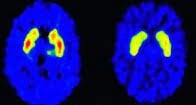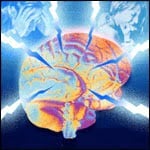New research reveals a spiral of dissatisfaction from over-stimulation.
 In a recent post (Intoxicating Behaviors), I suggested that today’s super-enticing fattening food and hyper-stimulating sexual videos could numb most brains’ pleasure response if their owners overdo it enough. This past week, new research confirmed that too much stimulation indeed progressively numbs the brains of people who engage in it, decreasing their satisfaction. It also points to a way out.
In a recent post (Intoxicating Behaviors), I suggested that today’s super-enticing fattening food and hyper-stimulating sexual videos could numb most brains’ pleasure response if their owners overdo it enough. This past week, new research confirmed that too much stimulation indeed progressively numbs the brains of people who engage in it, decreasing their satisfaction. It also points to a way out.
Over six months, the brains of women who ate more fattening foods changed. They showed less response to pleasure (than those who didn’t gain), which made the women more apt to overeat. In effect, the brain changes eroded their self-control, setting them on a downward spiral. Said lead researcher Eric Stice,
This is the first prospective evidence to show that the overeating itself further blunts the award [sic] circuitry. The weakened responsivity of the reward circuitry increases the risk for future weight gain in a feed-forward manner.
Human appetite for both food and sex is heavily influenced by the number of dopamine (D2) receptors in the striatum of the reward circuitry. When receptors drop after too much of a good thing, the brain doesn’t respond as much, and we feel less reward from pleasure for a time. (See before-and-after scans of dopamine receptors, above.) That drives us to search even harder for feelings of satisfaction—for example, by seeking out more stimulating food or more extreme sexual stimuli, thus further numbing the brain. The repercussions of this decreasing sensitivity go well beyond calories and climaxes, and show up as all kinds of unwanted symptoms:
If we have enough [neurotransmitters that regulate the reward circuitry], our emotions are stable. When they are depleted, or out of balance, what we call “pseudo-emotions” can result. These false moods can be every bit as distressing as those triggered by abuse, loss or trauma. They can drive us to [binge].—Julia Ross, nutritional psychotherapist
The natural downward spiral of brain sensitivity in response to excess explains why appetite pathologies typically take a chronic course and are resistant to treatment. But the new research also indirectly hints at the way to reverse the unhelpful brain changes: stop the behavior that’s causing them as soon as possible, without waiting until it crosses the line into obesity or hypersexuality.
If ongoing excess alters the brain, making control increasingly difficult, then foregoing the problematic behavior gradually restores the sensitivity of the brain, or at least substantially improves it. I often observe this turnaround in heavy porn users who give their brains a rest by avoiding porn and cutting way back on masturbation for a month or two.
The withdrawal misery can be grim while their brains are desperate for stimulation, but it’s evident from their self-reports that their brains soon become more sensitive. They notice improvements in many areas: sexual responsiveness, optimism, eagerness to approach prospective mates, reduced anxiety, and so forth. They are amazed at how far-reaching are the changes that stem from restoring the natural sensitivity of their brains.
Once they understand that restoring reward-circuitry sensitivity is the target, they gain a comforting sense of direction. They can match mood changes and other symptoms with their actions (or inaction). They begin to recognize the discomfort and cravings they can expect following intense stimulation. They figure out what best eases that discomfort, and how long it usually takes them to return to balance. Knowing the hidden costs of too much stimulation, they can choose to indulge consciously or opt for the benefits of less intense stimulation.
In short, they fully understand the addictive spiral and how to manage it. Once they are back in the driver’s seat, their confidence and optimism return. Said one:
Considering the big picture, you are not actually getting that much from porn. It’s not even happiness. It’s something that you may seem to need badly, not to be able to resist, but it’s harmful. The rational brain can logically override the reward circuitry signals so this issue can be overcome.
It would be great if scientists would do research that shows how long brains need to bounce back from too much stimulation via fattening food and extreme sexual stimuli. Already we know it is about 14 days before adenosine receptors return to their normal number following cessation of caffeine consumption. When we know how long the cravings and moodiness will linger, we can more easily muster the willpower to outlast them. Meanwhile, we can make our own experiments to discover what it takes to restore brain sensitivity and escape the downward spiral.
To be sure, we are all on a continuum when it comes to brain sensitivity and recovery time. Some brains arrive on the planet more vulnerable due to fewer dopamine receptors in key parts of the reward circuitry. Trauma, stress, loneliness, or pharmaceuticals dysregulate other brains. Yet even normal brains are at risk for increased dissatisfaction from over-stimulation.
Indeed, two-thirds of us are now overweight and 17% of Internet porn users are already showing signs of compulsive behavior. The tendency to grab for enticing food and sexual cues isn’t pathological, or even a handicap. It’s normal. It probably played a major role in enabling our ancestors to produce us. Alas, it’s also normal to spiral downward in response to hyper-stimulation because of the way our brains evolved. This means we’re not only on a continuum, but also facing a slippery slope.
 The good news is that we can each slide up and down the continuum, at least to some degree, by altering our behavior. The longer we have been binging, the longer it takes most of us to restore our normal brain sensitivity. Yet many achieve it.
The good news is that we can each slide up and down the continuum, at least to some degree, by altering our behavior. The longer we have been binging, the longer it takes most of us to restore our normal brain sensitivity. Yet many achieve it.
Unfortunately, the workings of this primitive appetite mechanism in the brain aren’t yet common knowledge. As a consequence, many of us assume that we can’t be over-stimulated by extreme versions of sex or food, and that only abnormal people become obese or hypersexual. By understanding how behavior and brain sensitivity actually interact, we may be able to avoid sliding into pathology.
It’s up to us
Our brains are set by our genetic make-up. Our environment is flooded with synthetically enhanced goodies marketed by powerful economic interests beyond our control. That leaves behavior as our best option for protecting (or restoring) the sensitivity and health of our brains. If we don’t consciously steer, many of us are wired to get caught in a downward spiral.
Fortunately, we humans have a lot more control over the sensitivity of our brains than has been acknowledged. This new research makes it evident that behavior matters.
Update: 2010 Statistics on World’s Fattest Countries
UPDATEs:
- Porn/sex addiction? This page lists 39 neuroscience-based studies (MRI, fMRI, EEG, neuropsychological, hormonal). They provide strong support for the addiction model as their findings mirror the neurological findings reported in substance addiction studies.
- The real experts’ opinions on porn/sex addiction? This list contains 16 recent literature reviews & commentaries by some of the top neuroscientists in the world. All support the addiction model.
- Signs of addiction and escalation to more extreme material? Over 30 studies reporting findings consistent with escalation of porn use (tolerance), habituation to porn, and even withdrawal symptoms (all signs and symptoms associated with addiction).
- An official diagnosis? The world’s most widely used medical diagnostic manual, The International Classification of Diseases (ICD-11), contains a new diagnosis suitable for porn addiction: “Compulsive Sexual Behavior Disorder.”
- Debunking the unsupported talking point that “high sexual desire” explains away porn or sex addiction: At least 25 studies falsify the claim that sex & porn addicts “just have high sexual desire”
- Porn and sexual problems? This list contains 26 studies linking porn use/porn addiction to sexual problems and lower arousal to sexual stimuli. The first 5 studies in the list demonstrate causation, as participants eliminated porn use and healed chronic sexual dysfunctions.
- Porn’s effects on relationships? Almost 60 studies link porn use to less sexual and relationship satisfaction. (As far as we know all studies involving males have reported more porn use linked to poorer sexual or relationship satisfaction.)